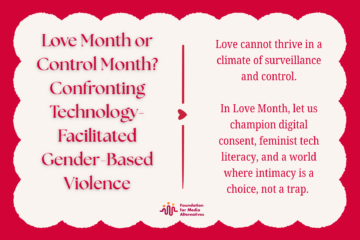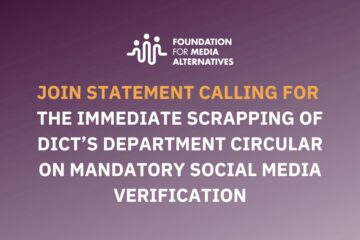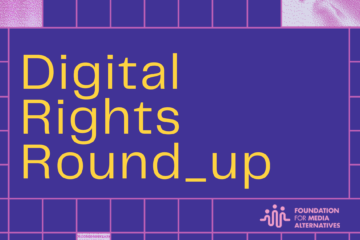Rainbows were Meant to Shine
As a biological male, everyone—even the people I don’t even know—expects that I will conform to the expectations that come with being a man in a patriarchal society. I am expected to be tough, lack drama in life, be direct, and practical. Like any other type of expectation, it molded me to be the person who I am not for a very long time. I may be a biological male, but I identify myself as a gay man. I have felt this way ever since I was a child. However, in a community heavily influenced by religious beliefs, I had to hide my true self as I would be condemned by a great majority. One of the challenges I faced in that situation was the constant questioning of my faith, fear, and love for the God that I worship. It took me a while to realize that I should not live a precious life hiding in the dark despite the close-mindedness of the world I live in. Through the things I learned along the way as I reached maturity, I have understood that there is nothing shameful about being the gay man I am. But before I proceed to my realizations, let me paint you a picture of what a gay man like me had to deal with for a long traumatic, painful time.
Families have always been perceived as our shield against the world’s ills. It is a common description for families to be our only allies when the world turns its back against us. Sadly, this was not the case for me. When I was a child, I was constantly reminded that I had to refrain from my feminine demeanor because it was a great embarrassment. My parents never fail to remind me that both sides of the family will laugh at my existence since I am less manly than society expected me to be. Every night of my childhood is spent shedding tears because of the ridicule I receive. It was tough living a life where I came home to a homophobic household from a discriminating world.
I do well in school. I come home with high grades and awards. I am blessed with opportunities to represent my school in journalism and debating. I was part of a high school choir and, now, a college dance organization. I serve the community through socio-civic activities. I am constantly placed in leadership roles. It may seem that I was making my parents proud, letting them have a child who has a diverse set of skills and a magnitude of capabilities. However, my parents never saw that. They only saw their gay child, being an embarrassment; being the son they never wanted.
I felt like a robot during my developmental stage since my parents controlled and monitored my every move: the way I acted, ate, walked, and talked. Other than that, when my classmates or schoolmates teased me for being gay, rather than taking my side, they would scold me at home and interrogate me on why the kids at school made such remarks about me. One of the worst things that I could cite as an example is that I was not able to enhance my talent in singing and dancing since they shamed me due to their belief that performing arts are exclusive to the ladies. Normally, kids hate schools due to the dull system it has. However, it felt like a haven for me—despite mean kids teasing me—because my friends were there who reflected the light that shines from the real me. It was as if the shackles of a patriarchal society were non-existent in our world.
I was well aware that my friends knew my gender identity even when we were still in elementary school, even when I was in that state of hiding in that dark closet. This is why I never needed to come out to them: they entered my dark hiding place with a beacon of acceptance, ending that agonizing solitude. I was not able to tell them the truth until senior high school. The reason for this is that I felt anxious about the thought that the words that would come out of my mouth would reach my parents.
The feeling of being unable to tell them is not a question of trust. My parents made me feel so less because of my sexuality, and that made so much impact on me that I grew up constantly being anxious and an overthinker. I would always dodge that question, and my friends understood. They let me embody my feminine traits despite denying that I am gay, and defend me from close-minded strangers. I am so glad that, with them, I can do what I want to do that society limits me from doing just because I am a biological male. I can be dramatic; I can sing; I can dance; I can be as bubbly as I want. More importantly, I can be me.
Because of my situation with my parents and society, I fear understanding myself and my sexuality. Although my friends are open to helping me in that aspect, it is I who was not willing to go through the process of trying to comprehend my sexuality. I struggled to accept myself for the entirety of my childhood and some part of my adolescence. There were moments I would pray to God: “Why was I made gay? Why was I not made a heterosexual to end the flow of my river of tears?”. Luckily, as I grew older, I learned lessons about sex and gender. I met open-minded people with progressive thinking that made me realize that people can be whoever they want to be as long as they do not sacrifice the safety and dignity of others.
I think the main foundation for comprehending the problem I faced is realizing that sex does not mold your gender. I also learned about the dynamics of a patriarchal society, which puts a strain on the lives of both men and women because of rigid sex roles. Despite the suffering of many in such an illogical system, purveyors are the same people who suffer from it. It is seen how a patriarchal society molded the parenting techniques of my parents, which caused me so much self-doubt and hatred. I grew up being insecure and constantly conquering suicidal ideation because of how the system molded the people who reside in it.
What I would like for people to understand is that gender is not a matter of choice. I did not choose to be gay; in fact, I hated being gay due to the daily condemnation that comes with it. I was a homophobe as a growing gay child because society poured me with hate and disgust due to my identity. I was never happy looking at myself in the mirror then because all I saw was a physical manifestation of disappointment. If people would argue and start telling me to stop being gay or stop choosing to be overpowered against this sin, I would like to ask them a question: Why would I choose a gender that undergoes a path of hatred within themselves and the society as a whole because of their mere existence? If gender is a matter of choice, I believe there will be no queer people because of the intense pressure of sex and gender roles. Furthermore, choosing to hide in the cloak of a fake persona is the definition of choice, which I do not want to partake in anymore. If people tell me that I will end up in hell because of my sexuality, I feel sorry for them because the God I believe in is loving and forgiving. Why would loving myself lead me to hell?
In the present time, since I know better, I will not live my life in hiding. I am reminded by Ananya Roy, a woman from a TED talk I watched, to disobey the rules that create inequality. If I stay silent, I may be considered a purveyor of this dreadful patriarchal society. My silence may silence others as well. Being ashamed of myself may spread a message that who I am is not okay or normal. With the knowledge I have, I should be more open to educating people who are willing to learn. The people I can educate can start with my friends up to the strangers that I will meet along the way through organizations that I will join in the future. Other than that, as an individual, I would treat people equally no matter what sex or gender they bear. The moment we start saying, “Do this because you are a man, do that because you are a woman,” we are continuing the cycle of suffering caused by patriarchy. If we commit ourselves to doing these acts, it will eventually lead to the masses until we reach the level of understanding we need to wreck this system of strain and illogical limitations.
My childhood as a gay man was not ideal. I am well aware that millions of children have it worse than I did. For that reason, we need to take a stand. We need to make people realize that gender is a spectrum, and our worth is not defined by where we are placed in that wide spectrum. We should eradicate gender biases because we are humans who are capable of so many things if we are to explore our capabilities and not be chained by the perceived limitations imposed by patriarchal ideologies. We should change that and it could start by being true to ourselves. I had no one to look up to for inspiration of self-love in the lens of an LGBT individual, but with how I have grown due to the things I have learned along the way, I hope I can be that image of strength, love, and acceptance to those children who are forbidden to embrace their truest selves. I hope I can be one of the shapers of the world where no one will feel ashamed of their sexuality. We can defeat this oppressive patriarchal system if we enable dignity and equity.
To my parents, I may not be the person you wanted. I may be the person you are ashamed to present to our other family members or your friends because of my gender identity. I hope you realize how I feel: I never wanted to feel unwanted for most of my life. I never wanted to develop hatred toward myself. I never wanted to flood my sheets in tears each night I was confronted with the discriminating world. I never wanted my heart to be pierced by the sharp knives of your painful words. I never wanted parents who made me feel like I was parentless. I do not know when you will accept me nor when I will be completely honest with myself around your presence. However, I will be myself as I journey through this life. I wasted almost two decades of my life hiding in the cloak of patriarchal conformity just to have a slice of your conditional acceptance. I am fully capable of a lot of things and heteronormative rules are holding me back. Rainbows were meant to shine, and I will shine brighter because I found light in the darkest of closets even when everyone tried to dim its glow.
This essay was written by FMA’s intern Angelo Gonzales, not their real name.



0 Comments